Female Social Entrepreneurship
How women shape sustainable development through social innovation
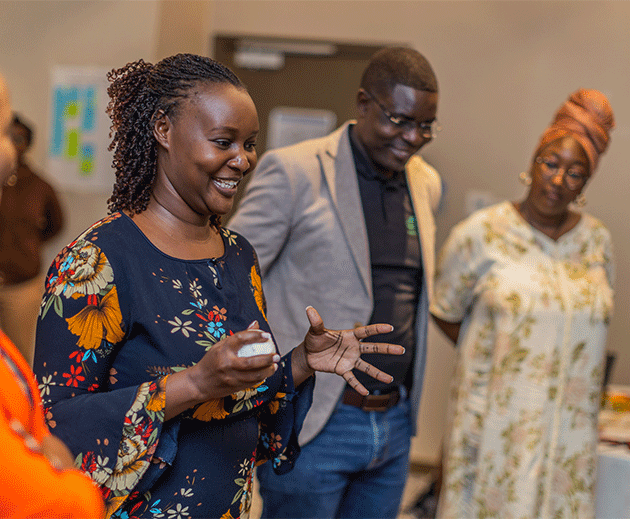
Worldwide, every second social enterprise is led by a woman (WEF, 2024) – more than double as in the entire corporate sector. Equal participation and diverse perspectives form the foundation of sustainable development and urgently needed transformations. To support this, Siemens Stiftung has been working closely with female social entrepreneurs for many years. The focus is on a partnership-based exchange that builds on essential local expertise and cultural knowledge.
Equality as a key factor for sustainable development
Female entrepreneurs bring diverse perspectives and approaches to the business world, developing new ideas, products and services (Global Entrepreneurship Monitor, 2024). At 24% – the highest rate of female entrepreneurship worldwide – women in Africa are leading the way in designing innovative solutions for their communities.
Working with female social entrepreneurs over the last decade, particularly in sub-Saharan Africa, we have experienced that social innovations have the strongest sustainable impact by embracing different perspectives to develop solutions for all stakeholders. Around the world, female social entrepreneurs are shaping inclusive innovations, promoting diversity in the workplace and helping overcome gender barriers.
Female social entrepreneurs are highly motivated to advocate for social issues that directly affect them. They use technological innovations and inclusive strategies to improve the quality of life of people at the bottom of the income pyramid (Rosca et al., 2020), taking into account the interests and needs of women.
Female social entrepreneurs create employment for other women (European Investment Bank, 2022), thereby strengthening their economic empowerment, but also that of other marginalised groups and low-income earners (Simba et al., 2023). In doing so, they create an inclusive working environment.
Women often face discrimination in social entrepreneurship, resulting in poorer financing opportunities. Therefore, female social entrepreneurs act positive role models in their communities and beyond by breaking many of these patterns of gender inequality and steadily improving the position of women in the sector (World Economic Forum, 2021).
Making a contribution plays an important role in female-led businesses (Bruckner and DeCamp, 2024). Many female entrepreneurs reinvest their profits in their communities, supporting educational initiatives, health projects and other social programs. African female entrepreneurs in particular place great value on education and mentoring to support the next generation of young women.
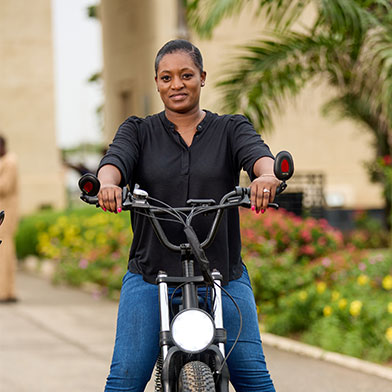
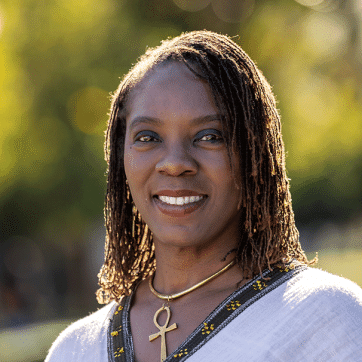
«Investing in female entrepreneurships strengthens entire societies. In Africa, where communities thrive on shared progress, women-led businesses drive economic growth, create jobs, and foster resilience.»
Celeste Vogel, Managing Director, eWAKA
Support from early stage to growth phase
The enormous contribution of women in social entrepreneurship is gaining increasing recognition. Many support programs are now also aimed at female entrepreneurs. This means that aspects such as gender-based discrimination, family role models, limited access to education and support are factored in. At the same time, in many African contexts, support programs tend to target established, visible companies. The early stages – from idea generation to start-up and initial growth – receive less support, even though this is precisely where decisive impulses for local empowerment arise.
That is why Siemens Stiftung specifically works with female social entrepreneurs in these early phases – particularly in the fields of e-mobility, water supply, women’s health and renewable energies. Our approach is context-specific, partnership-based and needs-oriented: We not only support projects but also accompany entrepreneurial personalities who are helping to shape the future of their communities – often under challenging conditions and with enormous innovative spirit. Our role is not of a guide, but rather a companion. By learning from each other and working together, we can bring about transformative changes.

Early phaseIdea generation and start-up
Since 2024, we have been working with Capital Solutions, a women-led social enterprise that supports female social entrepreneurs. Capital Solutions places a strong emphasis on promoting gender equality, particularly in the idea generation and start-up phase.
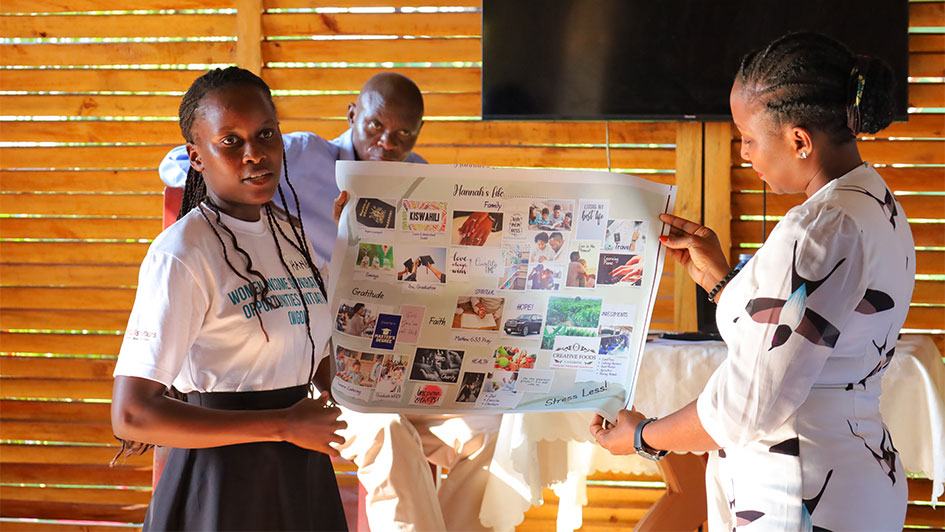
Women Income Generation Initiative (WIGOI)
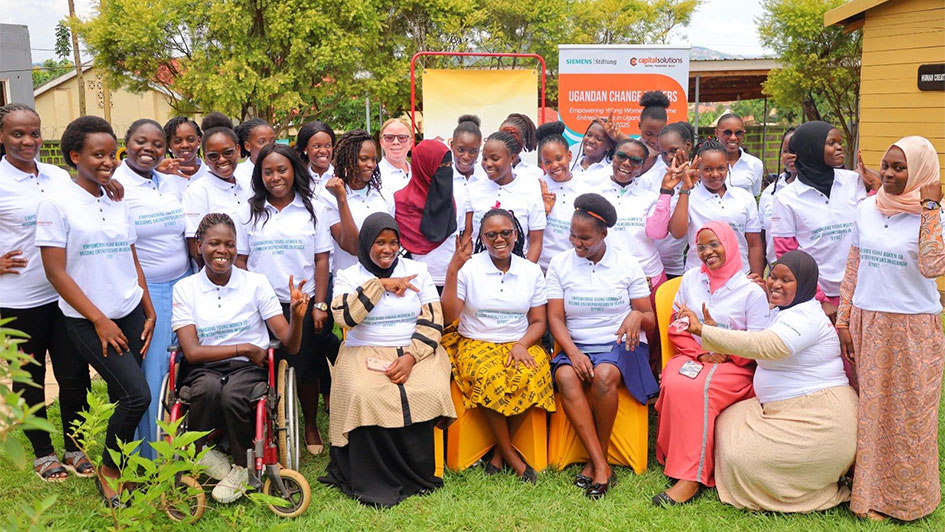
Ugandan Change Makers
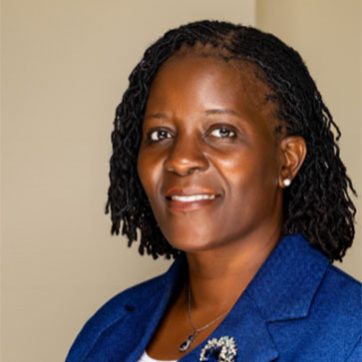
«We believe in the power of capacity building and mentorship for female entrepreneurs as the best way to address unemployment, gender inequalities and end household poverty. »
Dr. Joyce Namirimo Tamale, Co-Founder & CEO, Capital Solutions Limited
Growth phase Scaling impact
Through various programs, Siemens Stiftung supports promising companies in scaling their solutions. These collaborations are particularly valuable for both sides, as research and development yield new insights that strengthen local solutions for sustainable development.
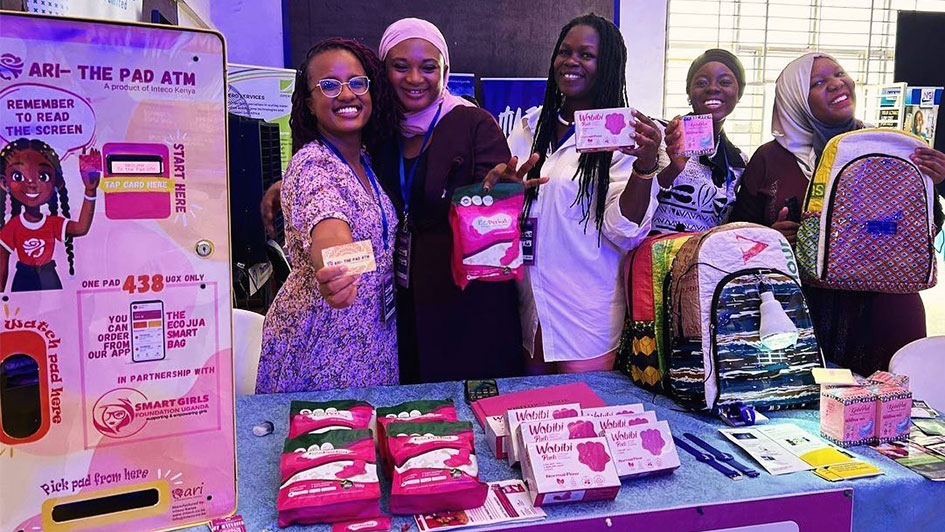
Female Health & Hygiene Accelerator (FHHA)
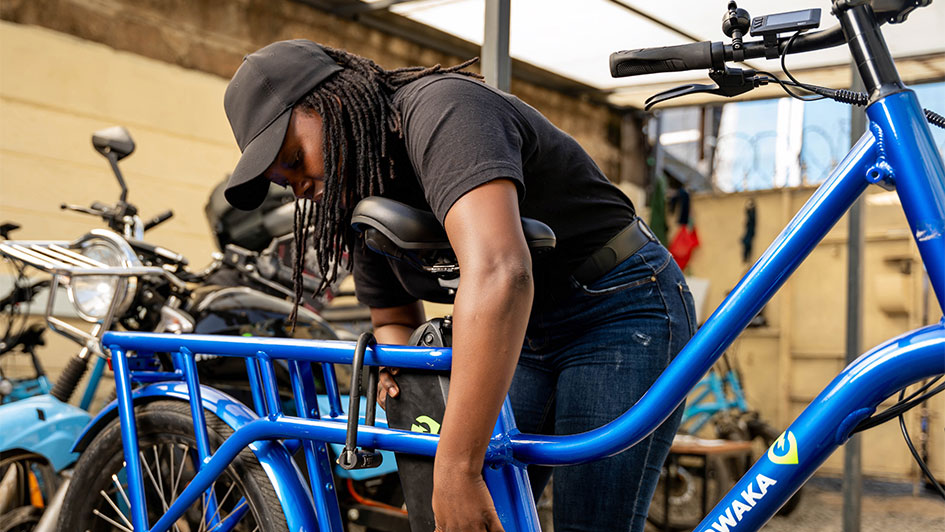
E-Mobility Programm
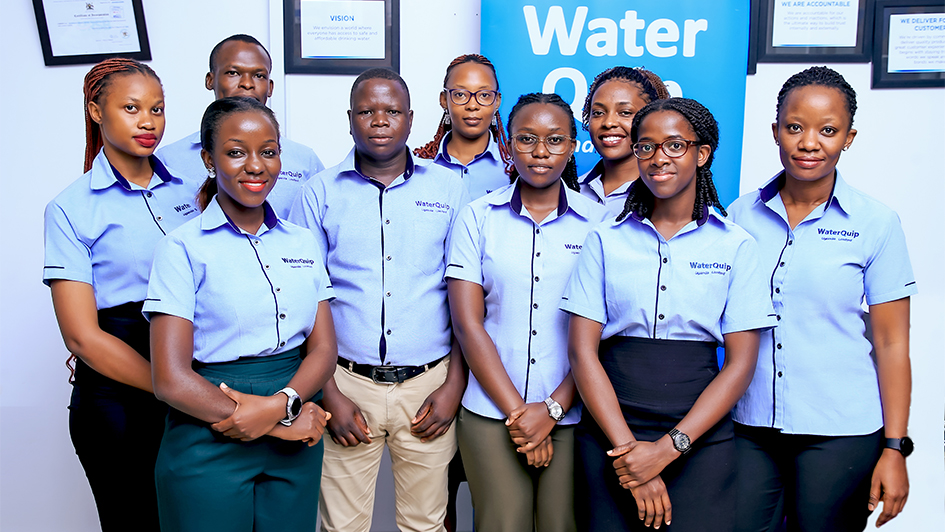
Drinking water for schools in Uganda
Contact
Would you like to find out more or have questions about the current tender?
Head of Community Learning & Development, Social Entrepreneurship
Christine Janezic
christine.janezic@siemens-stiftung.org
+49 89 540487 301
Would you like to learn more?
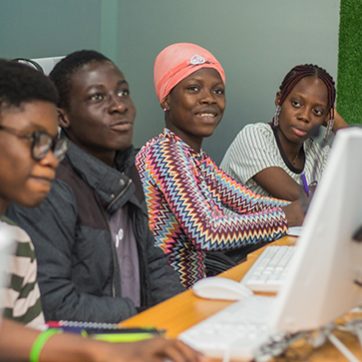
More women in STEM education
Our training programs, such as WeLearn and BeMINT_Nigeria, aim to break down stereotypes and enable equal opportunities: 50% of participants are therefore young women.
Video Interviews
Boosting last mile logistics
Celeste Vogel of eWaka Mobility Ltd. tackles the challenges of last mile logistics in Africa and emphasizes the importance of ecofriendly solutions that benefit all stakeholders.
Accelerating female health
Sareen Malik of Cewas aims to fight period poverty through social entrepreneurial innovation, strengthening female empowerment and social development.
Story
Links
- World Economic Forum, 2024: The State of Social Enterprise: A Review of Global Data 2013–2023
- Global Entrepreneurship Monitor, 2024: Women’s Entrepreneurship Report Reshaping Economies and Communities
- Rosca et al., 2020: Women entrepreneurs as agents of change: A comparative analysis of social entrepreneurship processes in emerging markets
- European Investment Bank, 2022: Support for female entrepreneurs: Survey evidence for why it makes sense
- Simba et al., 2023: Community financing in entrepreneurship: A focus on women entrepreneurs in the developing world
- Raja et al., 2021: Why empowering female social entrepreneurs is key to economic recovery
- Bruckner und DeCamp, 2024: Seven critical learnings about women entrepreneurs



